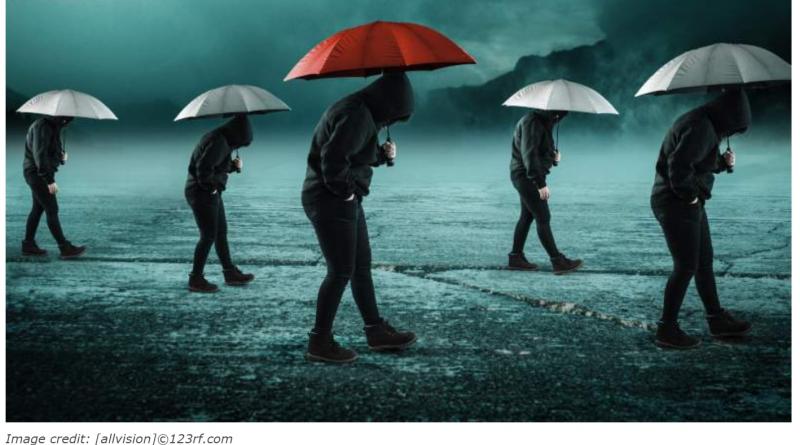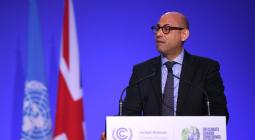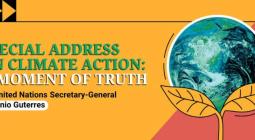Why setting the 1.5°C limit was a grave mistake

When the curtains fell at COP21, everyone was ecstatic about the historic decision to “…hold the increase in the global average temperature to well below 2° C above pre-industrial levels” and to pursue efforts “to limit the temperature increase to 1.5°C above pre-industrial levels.”
Over the following years, this phrase, especially the 1.5°C temperature limit, took on mythical dimensions. It was on everyone’s lips, and friends and foes alike repeated it endlessly. Most people praised it and used it to emphasize the required climate action. Some even poetically called it “The Northern Star.”
Almost ten years later, it’s crucial to wake up to some facts:
- The “target of targets,” the 1.5°C limit, was never the recipe for a paradise on earth but rather hell on earth for millions of people, as recent months have shown and the future will underline.
- The “Northern Star,” the 1.5°C limit, was the closest compromise scientists could reach, given the momentum of the free market economy, which was and still is based on fossil fuels.
- The 1.5°C temperature limit was not a target or prize but a dangerous threshold that should not be crossed at any cost.
Scientists knew this, but scientists are a minute fraction of the population. To the rest, the 1.5°C was just another number, another target, meaningless for most. This is where the IPCC, the UNFCCC, the UN, and everyone involved in these decisions made a huge blunder, probably the blunder of the millennia.
If you believe a threshold should not be crossed because going beyond it risks even survival, you don’t politely ask people to respect the threshold. You enforce it with every means available. And if you do not have the power to enforce it, you drive home the consequences of not observing science, with every means and power available to you. And if you fail to persuade those in power you turn to the billions powerless and tell them bluntly that their future is on the line.
This is where the IPCC made a bad call: they knew that a temperature rise of 1.5°C would mean disaster and yet they settled for warnings – strong, dire, well-justified, and well-documented warnings – but just warnings.
Why did they fail? Because humans, believe that limits are there to be broken.
There isn’t a single official limit on planet Earth that isn’t broken at some point by some people. We don’t respect speed limits, medical limits, or any limits, because some people find it beneficial to ignore them or don’t like to be told what to do.
Since time immemorial, people have crossed limits to prove this or the other, and this is even admirable, even desirable, as reading any novel will confirm.
If you give a child a big chocolate bar and ask them to take only one piece a day, what are the chances they will do so?
Above all, you don’t respect a limit when you stand to lose $7 trillion in subsidies per year alone. I mean, how many people voluntarily do things for the benefit of mankind, especially at their loss?
Did we really expect that urgently, yet politely asking the fossil fuel industry to end their gold run because the temperature was rising would have any effect?
Just setting the 1.5°C limit was an invitation to break it.
Companies and people continued for decades burning fossil fuels, knowing that the limit had not been crossed yet.
The fact that this is not a video game, where you can restart or where you have 3 lives was not really clearly understood.
None cared that once the limit was crossed, there was no going back, for a long time.
Of course, the IPCC kept pleading for humanity to respect the limit.
And, of course, the “I told you so” argument is no argument at all, as righteous and non-righteous alike drown or burn in the dystopic new climate as we cross, as we speak, the 1.5°C limit, the minimum survival level.
They should have tried to enforce the limit at all costs. Set it as a red line. No negotiations. Accept or perish.
Now it’s too late, at least for the 1.5°C. Now, as we are crossing the 1.5°C threshold, we simply confirm that it was never a promise of paradise but a door to hell on earth.
However, the IPCC’s strategy continues undeterred. So much so that consecutive COPs are held in fossil fuel-dominated countries (UAE, Azerbaijan). Not to mention that only at COP26 the term “fossil fuels” was directly linked to CO2 emissions and then only for coal. It took us 27 COP’s to put in black and white, in COP official text, that fossil fuels are responsible for CO2 emissions and we expected the fossil fuel lobby to respect the 1.5°C?
We had better chances waiting for Santa Claus to deliver in in our Xmas stocking.
And, of course, given that the UN is incapable of enforcing what science dictates, the temperature continues to rise. The 52°C in Delhi and the floods in Brazil and Kenya are the new normal. Kindly wait for your turn.
Maybe we should take comfort in the fact that at least we know why we are perishing.
Personally, I would hate to die with a question mark.
About the author
 Dr Ioannis Tsipouridis is a renewable energy consultant engineer. He is a Director at RECCReC (Renewable Energy & Climate Change Research Center at TUM) and a Visiting Professor at the Technical University of Mombasa (TUM).
Dr Ioannis Tsipouridis is a renewable energy consultant engineer. He is a Director at RECCReC (Renewable Energy & Climate Change Research Center at TUM) and a Visiting Professor at the Technical University of Mombasa (TUM).
Dr Tsipouridis is also a General Manager at R.E.D. Pro Consultants (Greece), a Member of the Fossil Fuel Non-Proliferation Treaty and Loss and Damage Collaboration Group and editor of e-mc2 (Energy Matters to Climate Change).





